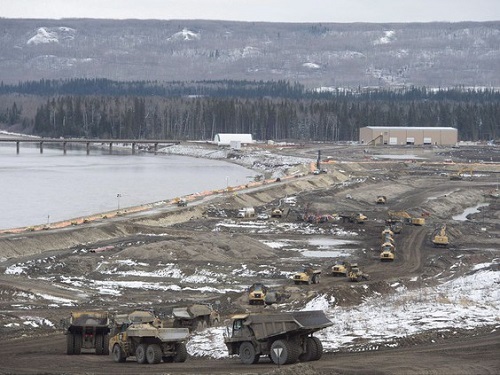 Tuesday, October 1, 2024
Tuesday, October 1, 2024  Tuesday, October 1, 2024
Tuesday, October 1, 2024 
If you’re looking for an example of green and clean energy policy in action, let’s take a walk around British Columbia’s massive $10-12-billion hydro dam project. Officially described as the “Site C Clean Energy Project” by its developer, B.C. Hydro, the project on the Peace River — some 1,185 kilometres by flying crow north of downtown Vancouver — is unfortunately a little messy and unstable at the moment, so watch your footing, and your wallet.
Under foot, according to Premier John Horgan, “there is instability on one of the banks of the river.” Early last year B.C. Hydro identified “structural weaknesses” in the project, which has been under construction since 2015. Site C is also said to suffer from “weak foundations.” Vancouver Sun columnist Vaughn Palmer recently reported that new information on the precariousness of the project, structurally and financially, continues to beg the question: Should Site C be killed and the $6-billion already sunk into it be abandoned?
Yes, says a new paper. In a review of the economics of the Site C hydroelectric project, three Canadian university economists — Brett Dolter in Regina, Kent Fellows in Calgary and Nic Rivers in Ottawa — conclude that the whole project is uneconomic as an energy source and fails its major green and clean promise, which is to reduce carbon emissions.
The worst numbers in the study: the total present value of the electricity produced from Site C is estimated at $2.76 billion against an estimated total cost of $10.7 billion, implying a loss of $8 billion. That’s bad. However, if the project were cancelled now, the loss would be cut in half to maybe $4.5 billion. The economists conclude that “policy makers should stop throwing money at a project that is likely to end up under water.”
Good strong conclusion. But there’s a caveat. Maybe, add the economists, just maybe Site C could be justified if the $10.7-billion current estimate project cost could be rolled into a massive national overhaul of the Canadian electricity system.
Keep reading this Terence Corcoran Opinion piece in the Financial Post